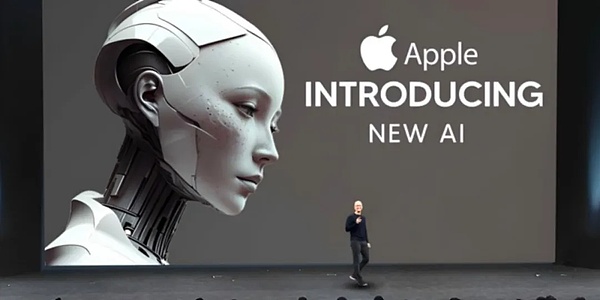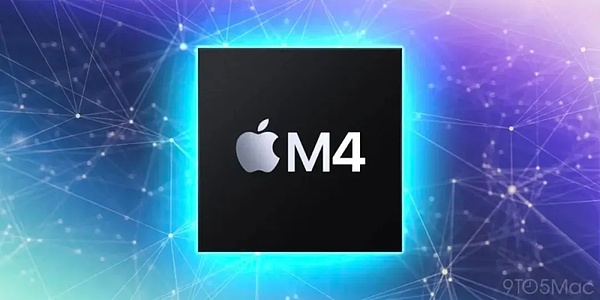Compared to the latest progress in AI by companies such as OpenAI, Microsoft, Google, and Nvidia, Apple has clearly encountered some challenges in AI research and development.
First, OpenAI and Microsoft have worked closely together to launch many advanced AI models and services, such as GPT-4 Turbo and Azure OpenAI services, which are designed to reduce costs, improve performance, and increase developer availability. Microsoft has also worked with Nvidia to adopt NVIDIA's latest hardware, such as H100 GPUs and Quantum-2 InfiniBand networks, to support large-scale AI training and inference workloads.
Google continues to innovate in its wide range of AI tools and services, launching platforms such as Google Cloud's Vertex AI to help companies build and deploy machine learning models. In addition, Google's Bard and other generative AI applications are making breakthroughs in various fields.

Apple's dilemma in AI R&D
Technology accumulation and gap with competitors:OpenAI and Google's research and products in generative AI (such as large language models) are already quite mature, and Microsoft has also made significant progress through its cooperation with OpenAI. These companies have demonstrated strong AI capabilities in many fields.
Nvidia dominates the field of AI hardware, and its GPU technology provides powerful computing power for many AI applications. Nvidia's chips are widely used in AI training and reasoning tasks.
Commercialization of AI products:Microsoft and Google provide AI solutions to corporate customers through their cloud services (Azure and Google Cloud), and have formed a stable business model. Apple's progress in AI commercialization is relatively slow, focusing mainly on integrated applications on devices rather than cloud services.
R&D strategy and resource investment:Although Apple has strong hardware and software integration capabilities, as well as a focus on privacy and security, these advantages have limited its rapid expansion in the field of AI to some extent. Apple prefers to run AI tasks on local devices to ensure user privacy, which is very different from many competitors that rely on cloud computing.
Self-developed chips and overtaking on the curve
"Generative AI is a 'key opportunity for all Apple products'. Integrating software and hardware, self-developed chips, and protecting privacy and security will be the key to Apple's success in the AI competition." This is Cook's summary of Apple's first quarter 2024 earnings conference call, and it may also be the deciding factor for Apple to stand out at the moment.
A potential breakthrough point for Apple in the field of AI lies in the ability of its self-developed chips. Through self-developed chips, Apple can optimize the efficiency of AI models running on its devices, which may be the key to its success in the AI competition.
Apple Silicon:Apple's M series chips have a powerful neural engine built in, specifically for processing machine learning tasks. This allows Apple to achieve efficient AI computing locally on the device without relying on cloud computing. The M4 chip is its latest self-developed chip with stronger computing power and AI processing capabilities, supporting a neural engine with up to 38 trillion operations per second (TOPS). This brings stronger AI processing capabilities to Apple devices, helping them gain advantages in AI applications and performance.
In the future, Apple may continue to strengthen its chip design to make it more suitable for running complex AI models and further enhance the intelligence level of its devices.

Privacy and security:Apple has always emphasized user privacy and data security, which is also an important direction of its AI research and development. By processing AI tasks on local devices, Apple can ensure that user data is not leaked, thereby gaining an advantage in privacy protection.
Apple plans to hold its annual Worldwide Developers Conference in June to unveil its artificial intelligence strategy. The meeting date is approximately June 10 to June 14, and Bloomberg reported that Apple's latest AI strategy will be part of its planned iOS18 update. It seems that Apple's AI strategy in 2024 is still focused on enhancing Siri and integrating more AI functions to improve the intelligence and user experience of its devices.
Although Apple faces many challenges in the field of AI, it is still possible to overtake others in the future through self-developed chips and innovative technologies with its unique hardware integration capabilities and commitment to privacy. Apple's strategy is not only to catch up with competitors, but to find its own unique positioning by providing a safer and more private AI experience.
 JinseFinance
JinseFinance
 JinseFinance
JinseFinance JinseFinance
JinseFinance JinseFinance
JinseFinance Wilfred
Wilfred Alex
Alex JinseFinance
JinseFinance Finbold
Finbold Olive
Olive Bitcoinist
Bitcoinist Coinlive
Coinlive